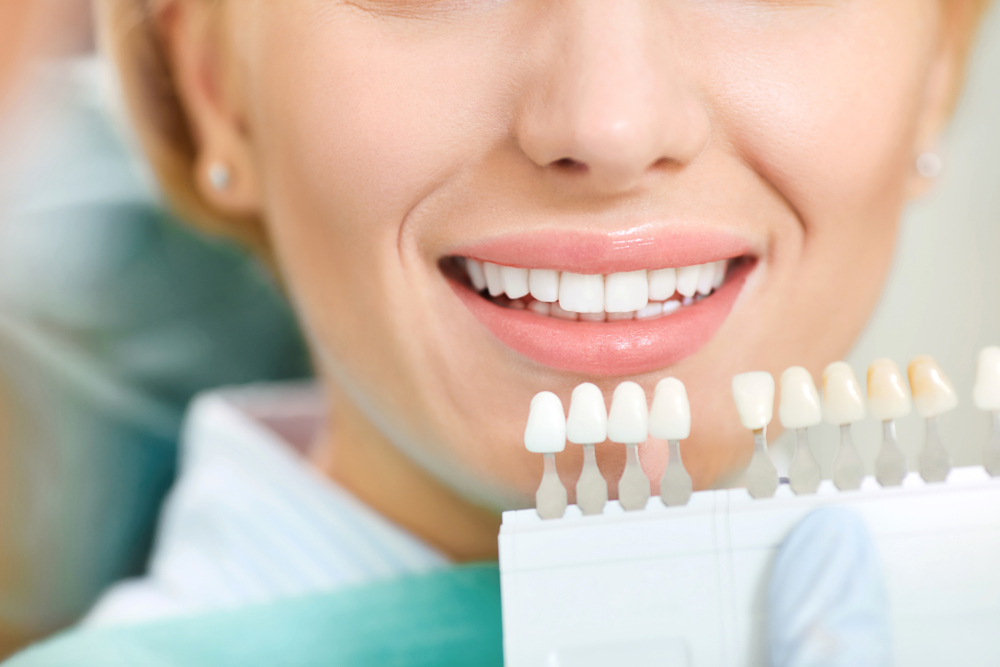Accepting New Patients

Welcome To

We Direct Bill

Over 25 Years of Experience

We pride ourselves in providing quality dental care while building relationships with all of our patients. At Acreview Dental Clinic, we utilize the most advanced dental technology to provide comprehensive dental care for you and your entire family in a comfortable and caring environment. Everyone deserves the very best care, and our team continually upgrades our dental education to continue providing this level of care to you.
At Acreview Dental Clinic, we take the time to understand our patients needs to develop personalized treatments to ensure you can achieve all of your smile goals. We will thoroughly explain your personalized dental treatment plan and answer any questions you may have. Our caring team will help you with any financial planning and ensure you have a pleasant dental experience overall.
We invite you to visit our practice today to show you what makes your visit to our clinic a truly unique experience! Our entire team looks forward to meeting and working with you to create the smile you have always dreamed possible! Contact our clinic today to book an appointment!


He had received a number of awards during his formal dental education. These included awards for highest proficiency and skill. They were awarded in the areas of oral surgery and fixed prosthodontics.
Dr. Burry currently runs his general dental practice with an emphasis on cosmetic dentistry, implant placement, and complex restorative dental procedures.
He is currently a member of the Canadian Dental Association, British Columbia Dental Association and the College of Dental Surgeons of BC.

In 1994, Dr. Karamanis was certified to restore dental implants by Branemark and in 2006 to place implants. He is constantly upgrading his skills with hundreds of hours of continuing education. This allows him to bring the latest materials and technologies to the Comox Valley. Dr. Karamanis has studied under many famous mentors including Dr. Gord Christensen and Dr. John C. Kois, and he is currently a mentor at the Kois Center®: Advancing Dentistry Through Science. Currently. Dr. Karamanis mentors other dentists in this teaching center in Seattle, helping them learn the latest techniques in complex restorative and aesthetic dentistry using risk assessment and evidence-based dentistry.

He received his BSC in Biology in Prince George and his dental degree from Western University in London, Ontario. Dr. Klopp comes by his enthusiasm for dentistry naturally with his mother being a dentist in Williams Lake for over 30 years. He is most excited about living in the Comox Valley, working with patients of all ages and utilizing his skills with modern dental technology at Acrevew Dental.

At Acreview Dental Clinic, we treat all of our patients with the utmost care. From the moment you walk into our practice to the moment you receive your treatment, we guarantee you will be in good hands. Our friendly team will greet you with a smile and thoroughly explain each and every step of the treatment to you. Please contact us if you are looking to schedule an appointment today!

At our dental clinic, we believe in providing patients with quality dental care at an affordable cost. With a wide range of services, our skilled dentists can help you achieve and maintain your dream smile. From restorative to cosmetic to preventative options, our team can help you entire family achieve beautiful and healthy smiles. Contact us to schedule your appointment today!

Are you looking to enhance your smile, restore a tooth, or simply clean your teeth? At Acreview Dental Clinic, our friendly team provides a wide range of dental services to ensure you can achieve all of your smile goals. With services such as dental cleanings, teeth whitening, and dental crowns, you can receive all of the dental care you need under one roof. Convenient and quality dental care is what we strive for. With extended hours and weekend hours, you don’t have to compromise your busy schedule. We also direct bill for your convenience.

He had received a number of awards during his formal dental education. These included awards for highest proficiency and skill. They were awarded in the areas of oral surgery and fixed prosthodontics.
Dr. Burry currently runs his general dental practice with an emphasis on cosmetic dentistry, implant placement, and complex restorative dental procedures.
He is currently a member of the Canadian Dental Association, British Columbia Dental Association and the College of Dental Surgeons of BC.

In 1994, Dr. Karamanis was certified to restore dental implants by Branemark and in 2006 to place implants. He is constantly upgrading his skills with hundreds of hours of continuing education. This allows him to bring the latest materials and technologies to the Comox Valley. Dr. Karamanis has studied under many famous mentors including Dr. Gord Christensen and Dr. John C. Kois, and he is currently a mentor at the Kois Center®: Advancing Dentistry Through Science. Currently. Dr. Karamanis mentors other dentists in this teaching center in Seattle, helping them learn the latest techniques in complex restorative and aesthetic dentistry using risk assessment and evidence-based dentistry.

He received his BSC in Biology in Prince George and his dental degree from Western University in London, Ontario. Dr. Klopp comes by his enthusiasm for dentistry naturally with his mother being a dentist in Williams Lake for over 30 years. He is most excited about living in the Comox Valley, working with patients of all ages and utilizing his skills with modern dental technology at Acrevew Dental.

At Acreview Dental Clinic, we treat all of our patients with the utmost care. From the moment you walk into our practice to the moment you receive your treatment, we guarantee you will be in good hands. Our friendly team will greet you with a smile and thoroughly explain each and every step of the treatment to you. Please contact us if you are looking to schedule an appointment today!



Our practice direct bills on your behalf! You can come in to receive quality dental care without worrying about any financial aspects. We go above and beyond for the convenience of our patients.

Our dentist in Comox, BC treat each patient with the utmost care. From the moment you walk in to our practice to the moment you leave, our team will treat you like our family.
Our dental clinic in Comox, BC is open on weekends and some evenings to ensure you can receive the dental care you need admit your busy schedule.
© 2024 – Acreview Dental Clinic | All rights reserved
© 2023 – Acreview Dental Clinic | All rights reserved